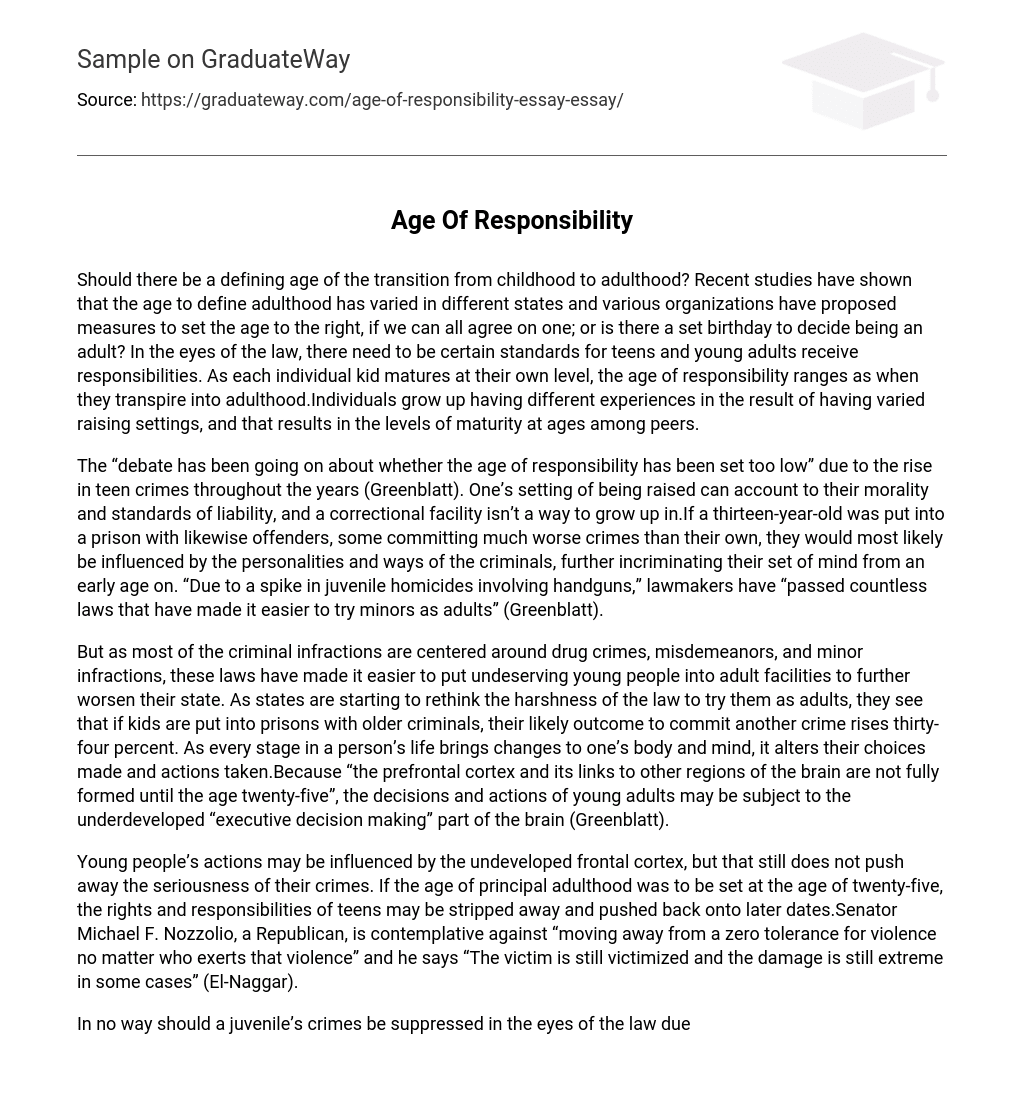Recent studies have shown that the transition from childhood to adulthood is marked by different ages in different states, and various organizations suggest measures to establish the appropriate age. However, it remains unclear whether there can be a universally agreed-upon age or a specific birthday that definitively determines adulthood. The law requires certain standards for teenagers and young adults to assume responsibilities. As each child develops at their own pace, the age at which they become responsible varies. Diverse upbringing environments contribute to individuals having distinct experiences, resulting in varying levels of maturity among peers at different ages.
There is an ongoing debate about whether the current age of responsibility is too low, especially in relation to the rise in teenage crimes (Greenblatt). The moral values and sense of accountability of young individuals are greatly influenced by their upbringing and surrounding environment. It is not suitable for them to be raised in correctional facilities because being placed among other offenders, some with more severe criminal records, increases the likelihood of being influenced by their behavior and mindset at a young age. Lawmakers have responded to the increase in juvenile homicides involving handguns by passing several laws that allow minors to be prosecuted as adults (Greenblatt).
However, the implementation of these laws has had an unintended consequence: placing young individuals who do not deserve it in adult facilities. This worsens their situation because most criminal offenses are related to drug crimes, misdemeanors, and minor infractions. As states reconsider the severity of these laws and choose to treat young people as adults, they recognize that incarcerating children alongside older criminals increases their chances of reoffending by thirty-four percent.
Each stage of life brings about changes in a person’s body and mind that affect the choices they make and actions they take. This is because the “prefrontal cortex and its connections to other brain regions are not fully developed until the age of twenty-five,” potentially exposing young adults to less-developed executive decision-making abilities (Greenblatt).
Despite the influence of young people’s undeveloped frontal cortex on their actions, the seriousness of their crimes cannot be minimized. If the age of adulthood were increased to twenty-five, teenagers would experience a delay in acquiring rights and responsibilities. Republican Senator Michael F. Nozzolio rejects deviating from a zero tolerance approach towards violence, asserting that regardless of the perpetrator’s identity, the victim still endures suffering, and in certain instances, significant harm can occur (El-Naggar).
While it is important for the legal system to acknowledge and address crimes committed by juveniles regardless of their age and maturity, some may argue that the consequences imposed on young individuals can be seen as excessive. Teenagers are currently in a stage of absorbing knowledge about citizenship and adulthood, which suggests they are still undergoing a developmental period. This could potentially make it challenging for the government and the law to accurately assess the maturity level and behavior of young adults. Hence, there is uncertainty regarding whether these individuals are ready to handle responsibilities without parental guidance.
Some people argue that the age of adulthood in America is eighteen or twenty-one. However, selecting a specific birthday as the milestone for reaching adulthood can be a contentious issue.





